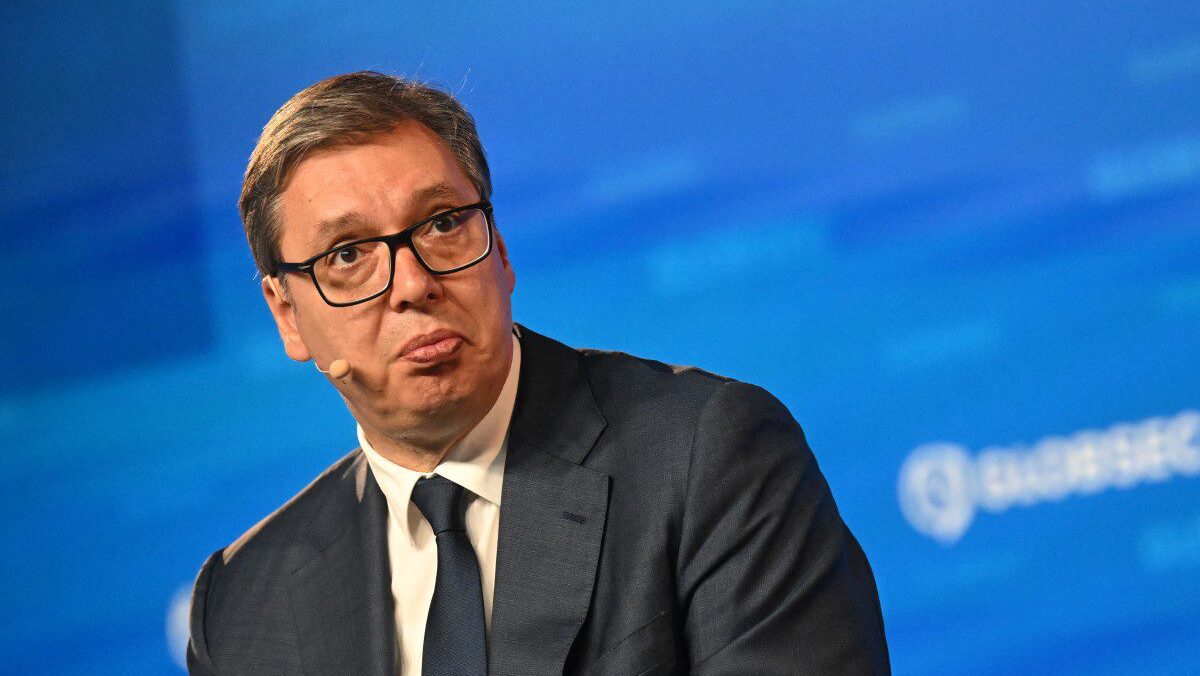
Serbia’s President Aleksandar Vučić attends the GLOBSEC regional security forum in Prague on August 31, 2024.
PhotoMichal Cizek / AFP
At the 2024 Security Forum in Prague, arranged by the non-partisan Central European NGO GLOBSEC, Serbian President Aleksandar Vučić expressed doubts that his country, or other Western Balkan candidates, will achieve EU membership by 2028 due to ongoing challenges.
Montenegro’s President Jakov Milatovic, in contrast, remains optimistic about his country’s EU prospects. As a NATO member, Montenegro aims to join the EU by 2028. Milatovic remarked:
We would like to come to the final stage, and now the goal is to become the 28th member state of the EU as of 2028. This is an ambitious goal but I very much hope (it) to be a realistic goal.
President of the European Council Charles Michel said in 2023 that the EU and its candidates should set a “clear goal” for themselves and be ready to expand by 2030.
Serbia’s path to EU membership has been lengthy. Identified as a potential candidate in 2003, the country formally applied in 2009 and received candidate status in 2012. Over the past decade, 22 of the 35 negotiation chapters have been opened, with two provisionally closed. The negotiations on EU accession conclude when all chapters are agreed upon by both the EU and the candidate country, followed by confirmation from the European Council.
During a GLOBSEC panel, Vučić emphasized his practical approach:
I am interested in Serbia’s economic progress, where we have managed to surpass everything in the Western Balkans. What I can do for my country is what matters most to me because I want our people to live better. I hope that we will manage to keep peace and stability, and whether the EU will be ready for us and when, we will see.
Vučić said that, while all the Western Balkan states aim to become EU members, they have different outlooks on when membership is realistically attainable.
In the meantime, what we need to do is implement concrete steps, such as access to a single European market, green corridors, reforms that will attract even more direct investments, and a change in the general political and economic atmosphere.
He said Serbia has “better than anyone else” implemented its growth and reform agenda, and said he sees disagreements regarding Kosovo—not Serbia’s relations with Russia—as the biggest obstacle to EU membership.
Serbia has maintained a historically strong relationship with Russia. Although Vučić said he hasn’t spoken to Russian President Putin for over two years, he doesn’t downplay the relationship: “We do not hide this, and I am not ashamed of it,” he said.
Despite repeatedly condemning the Russian attack on Ukraine, Serbia has not imposed sanctions on Russia, unlike most EU candidate countries. Vučić acknowledged that the EU disagrees with Serbia’s stance, but added that the EU does “understand” Belgrade’s position.
In 2023, the Socialist Movement, a junior government partner, launched a campaign in the Serb parliament to apply for membership in the BRICS bloc as an alternative to EU membership. While Serbia has received an invitation to the October BRICS summit in Kazan, Russia, Vučić has made clear that a potential alignment with that bloc is not in the cards during his presidency: “I have the utmost respect for BRICS, but Serbia is on the European path, and Serbia will remain on it,” Vučić said.
